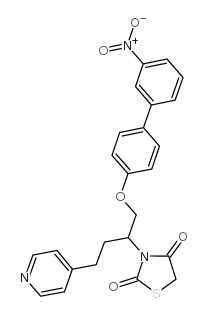P2X(7) receptor-mediated release of cathepsins from macrophages is a cytokine-independent mechanism potentially involved in joint diseases.
Gloria Lopez-Castejon, Jill Theaker, Pablo Pelegrin, Andrew D Clifton, Martin Braddock, Annmarie Surprenant
Index: J. Immunol. 185 , 2611-9, (2010)
Full Text: HTML
Abstract
The ATP-gated P2X(7) receptor (P2X(7)R) is a promising therapeutic target in chronic inflammatory diseases with highly specific antagonists currently under clinical trials for rheumatoid arthritis. Anti-inflammatory actions of P2X(7)R antagonists are considered to result from inhibition of P2X(7)R-induced release of proinflammatory cytokines from activated macrophages. However, P2X(7)Rs are also expressed in resting macrophages, suggesting that P2X(7)R may also signal via cytokine-independent mechanisms involved in joint disease. In this study, we examined P2X(7)R function in resting human lung macrophages and mouse bone marrow-derived macrophages and found that ATP induced rapid release of the lysosomal cysteine proteases cathepsin B, K, L, and S and that was independent of the presence of the proinflammatory cytokines IL-1beta and IL-18. Cathepsins released into the medium were effective to degrade collagen extracellular matrix. ATP-induced cathepsin release was abolished by P2X(7)R antagonists, absent from P2X(7)R(-/-) mouse macrophages, and not associated with cell death. Our results suggest P2X(7)R activation may play a novel and direct role in tissue damage through release of cathepsins independently of its proinflammatory actions via IL-1 cytokines.
Related Compounds
| Structure | Name/CAS No. | Molecular Formula | Articles |
|---|---|---|---|
 |
AZ 11645373
CAS:227088-94-0 |
C24H21N3O5S |
|
Characterization of a selective and potent antagonist of hum...
2006-12-01 [Br. J. Pharmacol. 149 , 880-887, (2006)] |
|
Functional evidence for the expression of P2X1, P2X4 and P2X...
2009-08-01 [Br. J. Pharmacol. 157 , 1215-24, (2009)] |
|
Pharmacological properties of the rhesus macaque monkey P2X7...
2011-09-01 [Br. J. Pharmacol. 164 , 743-54, (2011)] |